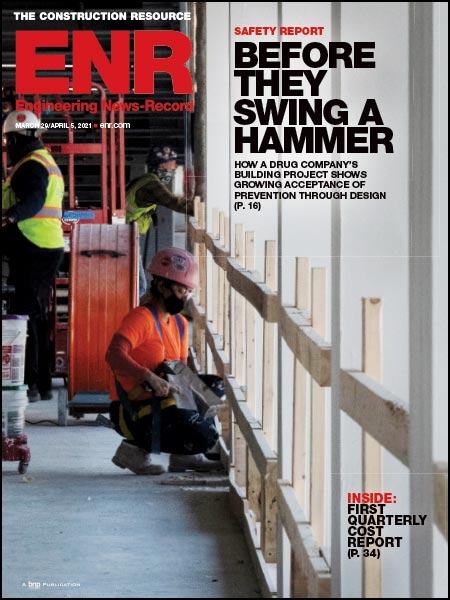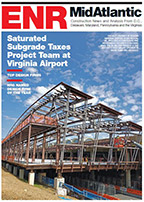
Claiming the Fluor Corp.-led team that manages and operates a federal nuclear-waste site in Aiken, S.C., intentionally misled it about the status of design completion on a $90-million plutonium and uranium waste-disposal project under way, Baker Concrete Construction Inc. sued the joint venture on June 6 in U.S. District Court there.
Baker seeks damages of nearly $20 million from Savannah River Nuclear Solutions LLC for costs related to design changes for the facility at the U.S. Energy Dept.'s Savannah River site, says the firm's attorney.
Alleging multiple instances of fraud in its complaint, Baker says the SRNS joint venture, which was responsible for design, either "knowingly released inadequate and outdated" design documents or "grossly failed to adequately perform the necessary due diligence" related to facility engineering.
An SRNS spokeswoman declined to comment on the suit.
Monroe, Ohio-based Baker procured the contract to build the waste-stabilization building on a fixed-price basis.
It claims the misinformation began in February 2009, when SRNS first solicited contract proposals. The 33,000-sq-ft concrete structure will treat transuranic and low-level radioactive wastes from other site facilities that dispose of surplus uranium and weapons-grade plutonium.
Originally, the project was set for completion by July 2012.
In its suit, Baker claims that "over 98% of all drawings released for solicitation by SRNS were represented to be accurate, significantly complete, sufficient and 'issued for construction.' " The firm initially bid the project at $93.6 million but reduced that to $91.5 million after continued assurances from SRNS about the project's design.
After Baker signed its contract in July 2009, "the design changes began, continuously increased and, to this day, [have] never ceased," the suit contends. The project "became a relentless, never-ending and all-encompassing series of 'wall-to-wall' changes," Baker claims.
Baker's complaint quotes extensively from a June 2012 letter sent by Carol Elliott, contracting officer at DOE's National Nuclear Security Administration, that states, "SRNS has been negligent in its management of the ... project" and that the venture "failed to address shortcomings in the design."
After noting the managing venture's contractual responsibility for design, Elliott asks it to explain why "repeated delay in taking prompt and effective corrective action … does not rise to the level of gross negligence or willful misconduct?"
Says Baker General Counsel Todd Wilkowski, "It certainly seems to us that they knew or should have known that this design was nowhere near complete."
But the firm says it "remains committed to working with SRNS to resolve these disputes in a timely and fair manner."






Post a comment to this article
Report Abusive Comment